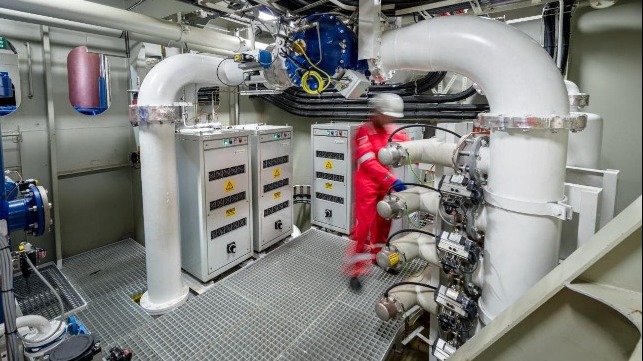‘Reliability is Key’ for Ballast Water System Compliance

[By: Optimarin]
The reliability and efficiency of ballast water treatment (BWT) systems will be critical to achieving regulatory compliance for shipowners in future - and any malfunctions could seriously hit commercial operations.
“Any shipowner knows that time is money and downtime in port or drydock due to unnecessary repairs to a BWT system disrupts voyage schedules and fleet efficiency,” says Tore Andersen, vice president of sales & marketing for Norwegian ballast water treatment specialist Optimarin.
With a 2024 deadline for compliance with the IMO’s ballast water convention rapidly approaching, BWT system failures could have even more serious consequences, as he says: “In the worst-case scenario, owners could be left with non-compliant vessels that are unable to trade.”
Andersen believes it is therefore vital that they select the right manufacturer and yard to install BWT systems from the outset.
However, there is a risk owners will resort to cheaper, sub-standard equipment amid an expected retrofit rush as around 35,000 vessels still remain non-compliant, according to Clarksons’ World Fleet Register, and this is set to create a demand bottleneck for yards and suppliers.
BWT teamwork
Optimarin has joined forces with UK-based ship repair and retrofit group Newport Shipping to supply its high-specification BWT system as part of a turnkey package for installation at one of Newport’s global network of 15 partner yards, with favourable deferred payment terms.
The alliance has recently secured the first orders for the so-called Optimarin Ballast System (OBS), with backflushing, self-cleaning filters and UV irradiation treatment to eliminate invasive species from ballast water tanks.
The system is based on advanced technology that has been refined over more than 20 years of successful operation from over 800 deliveries, though it remains simple to operate and maintain, and also has a high level of redundancy to ensure continual operation.
Andersen says the flexible, modular design of the OBS, which can be delivered within only 10 days, makes it adaptable for a wide range of ship types.
This also makes it easy to install within a short time-frame as part of a drydocking stay for class renewal or repair work at a yard that includes compliance testing.
Furthermore, the shipowner has flexibility in dock selection as Newport’s affiliate yards are situated in low-cost locations spanning international trade routes in the Atlantic and Pacific regions.
Digital upgrade
Optimarin has significantly upgraded its OBS with the recent launch of OptiLink™, a cloud-based digital solution that gives the crew access to key performance indicators via a user interface and facilitates data transfer to the operator onshore for enhanced fleet-wide ballast water management.
Andersen points out this will also improve system reliability as diagnostic data enables remote troubleshooting 24/7 and over-the-air software upgrades to minimise physical intervention for maintenance, saving time and money for the shipowner.
This digital solution can be incorporated within a new long-term service agreement, backed by Optimarin’s global after-sales support network.
Critically, OptiLink™ is also set up to transfer data on ballast-water quality to third parties such as port authorities and class societies so compliance certification can be more quickly obtained without the need for lab testing and inspections at ports.
“Ballast water compliance will be a licence to trade in future and the longevity of equipment is important so, despite time pressure, shipowners should not compromise on standards when selecting BWT systems,” Andersen says.
The products and services herein described in this press release are not endorsed by The Maritime Executive.
